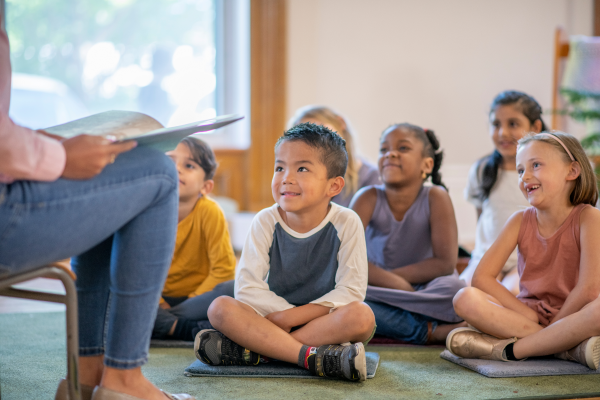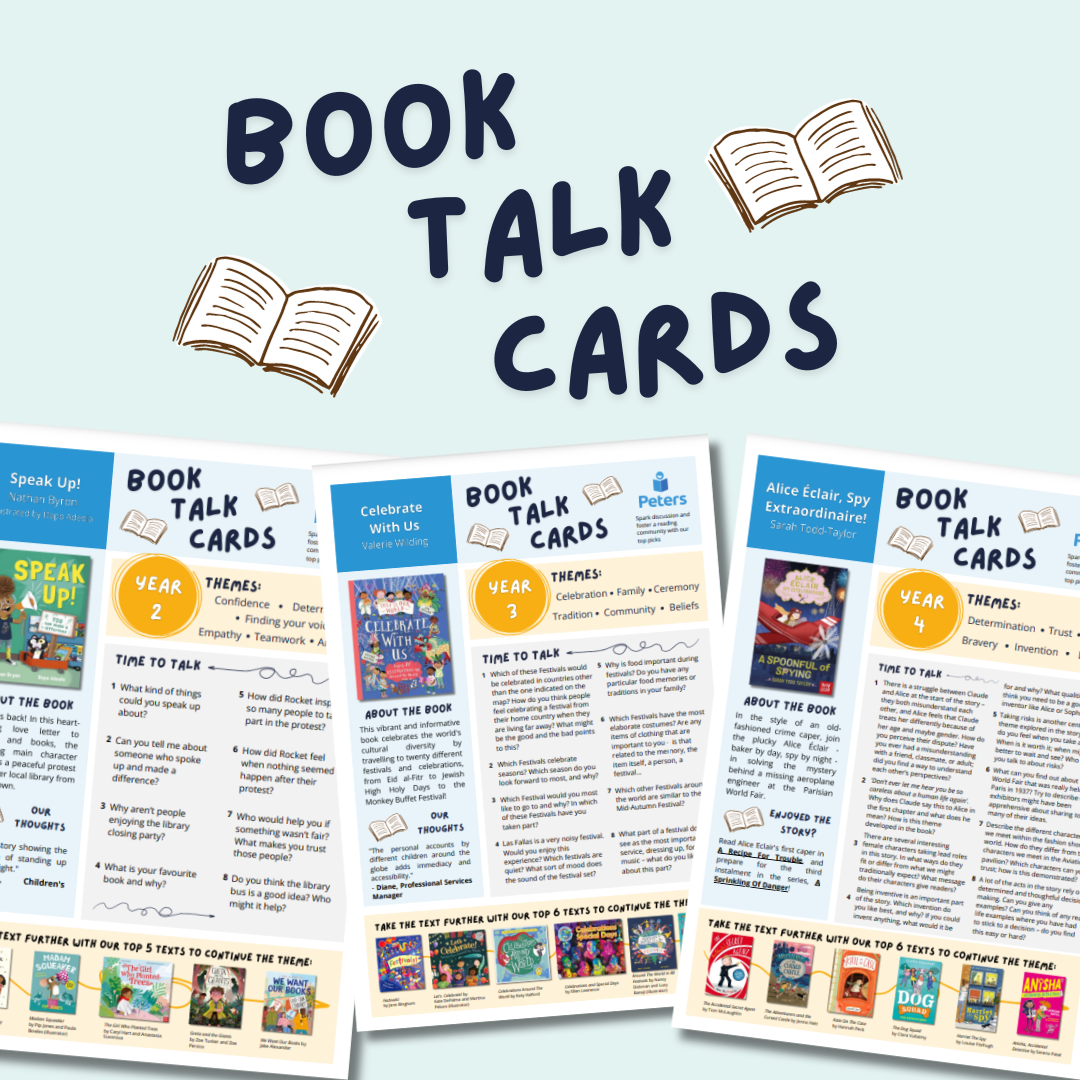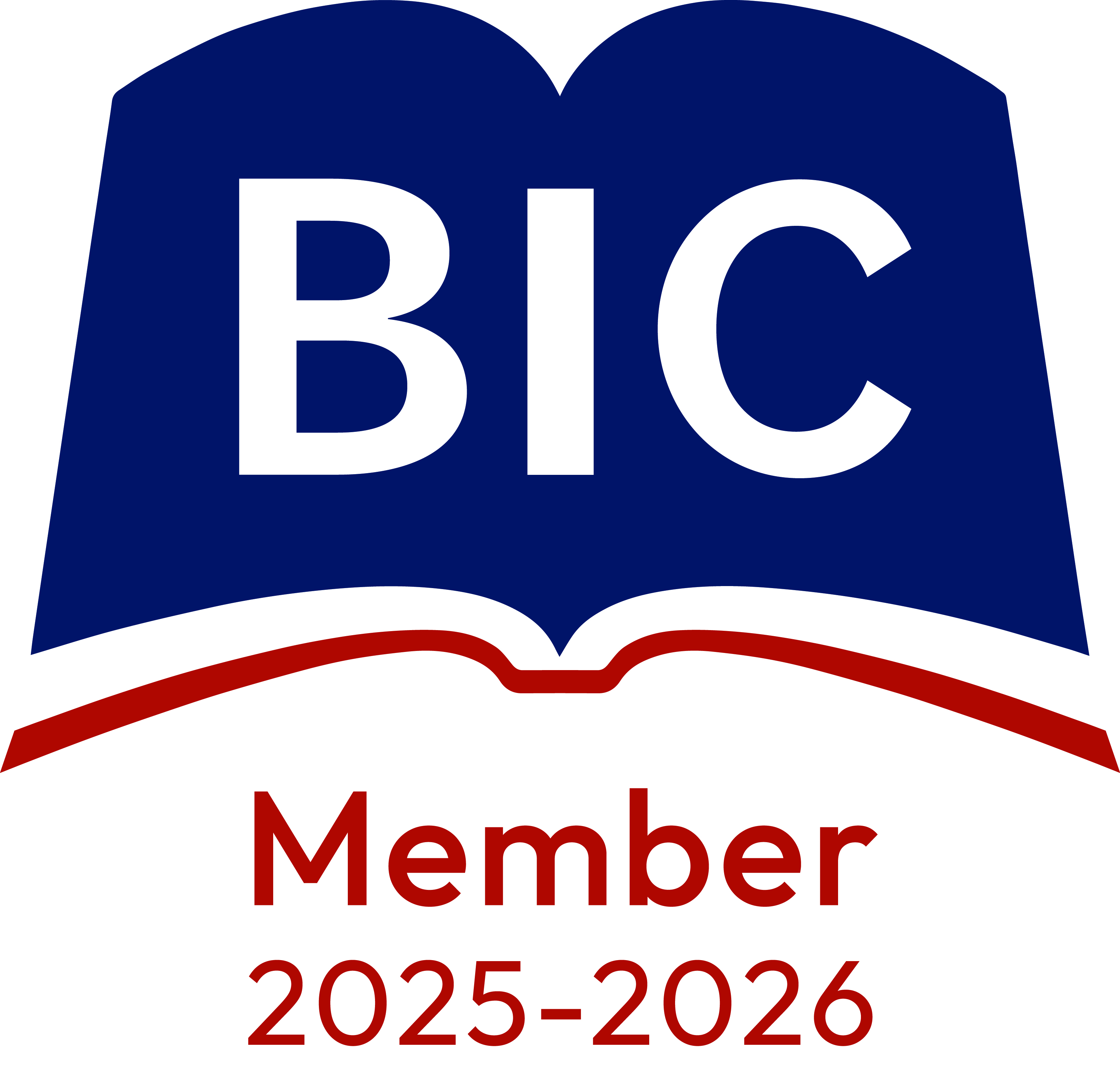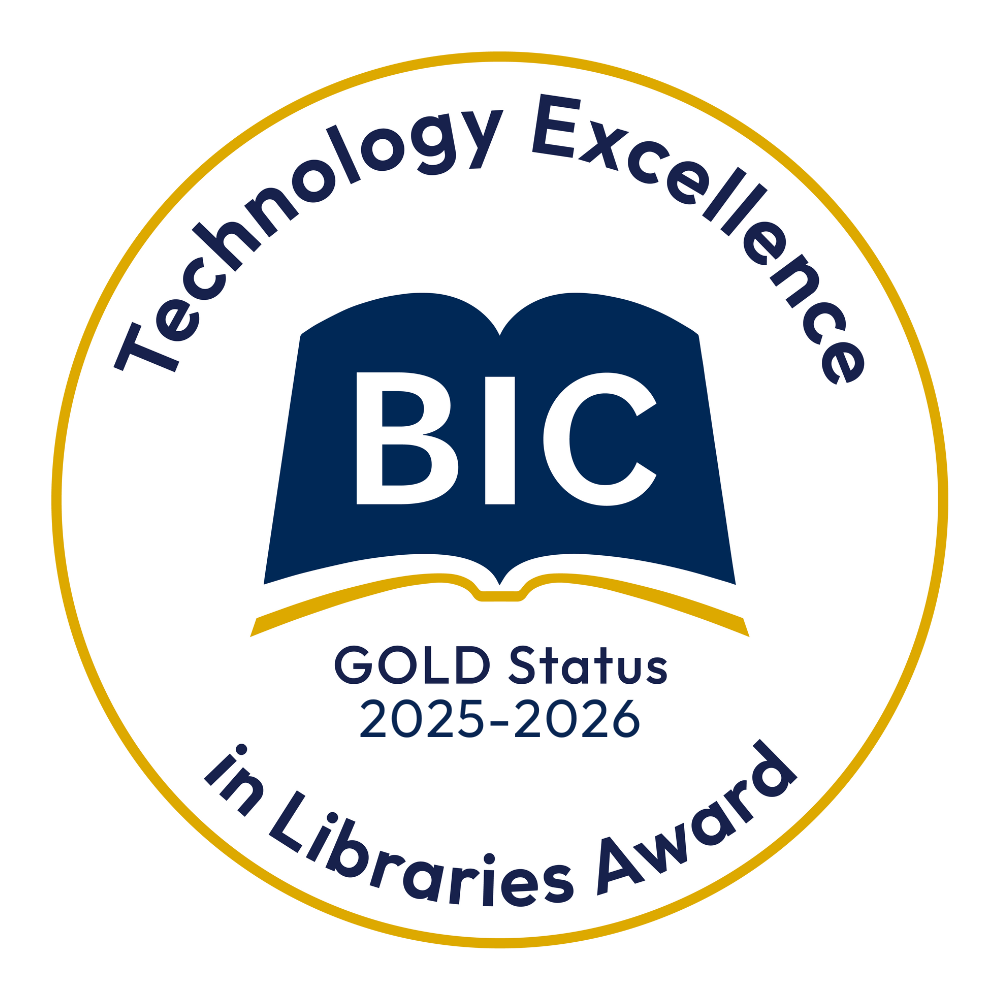Please note that we will automatically hold all schools orders from 16–20 February due to the half-term break. If your school remains open for delivery and you'd like your books delivered during that week, please let us know by calling us on 0121 666 6646 or emailing hello@peters.co.uk.
For help, advice and telephone ordering call our team on 0121 666 6646
Are you sure you wish to delete this basket?()
This action cannot be undone.
Sorry, something went wrong
Please report the problem here.
Reading Framework series: Fostering reading relationships using book talk
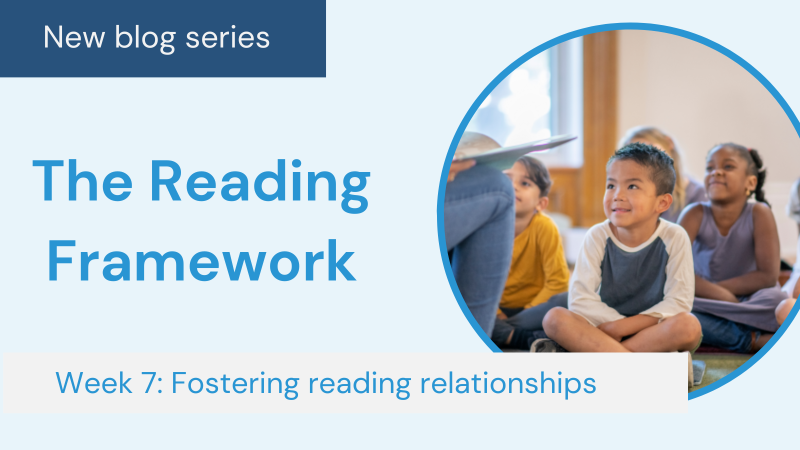
November 6th 2023
Those of us who teach children to read know that it is often the shared experience of talking about a book with their peers that can help spark pupils’ lifelong love of reading. That is why it’s encouraging to see the increased priority that The Reading Framework gives to book talk. This week, we consider ways to get your pupils talking about books, from guided reading activities to stories read aloud.
The importance of reading aloud"Reading aloud fosters positive attitudes, enhances pupils' motivation to read and develops vocabulary and other knowledge, including of books, authors and genres that they might not choose to read for themselves." DfE Reading Framework 2023, page 101 Guided reading activities are great ways to develop vocabulary and confidence in reading. There is great value in reading aloud to children and young people of all ages in school, particularly as research highlights that many parents don't read to their children as much as they might. Fewer than half of 5-7s and a quarter of 8-10s are read to ‘every day or nearly every day’. The latest Annual Literacy Survey found that only 19.9% of respondents (1 in 5) aged 8 to 18 reported reading with their family. However, the research also shows that those pupils who are read to are also far more likely to regularly read for pleasure themselves. |
|
|||||
|
Therefore reading aloud remains important at all stages of pupils' development, even once they can read independently. The framework recommends that teachers provide story time for Key Stage 2 pupils, at least four times a week for 20 minutes. At Key Stage 3, form tutors should consider reading aloud during tutor time, while subject teachers should also consider reading texts aloud. |
||||||
Developing pupils' vocabulary'Listening to and talking about stories and non-fiction develops children's vocabulary, because they meet words they would rarely hear or use in everyday speech.' DfE Reading Framework 2023, page 6 Along with encouraging children to develop a love of reading, hearing texts read aloud and being given the opportunity to talk about texts themselves helps to expand their vocabulary, with multiple benefits. Understanding vocabulary is vital to overall comprehension, and opens up access to other areas of the curriculum, so it's key to pupils' wider attainment and progress. Developing a love of language can also support pupils in developing their own writing skills, and the confidence to express themselves effectively out loud. |
||||||
Guided reading activitiesGuided reading, the practice of teaching pupils reading and comprehension skills, usually involves an adult working with small groups, differentiated by reading ability. It is another opportunity for teacher and pupils to discuss texts, at a level which is appropriate for the pupils, and to support them with encountering and understanding new vocabulary. Our book packs for schools for guided reading include a wide variety of text types: older picture books for KS2, poetry books, short chapter books, short novels and non-fiction texts. |
||||||
|
|
Discussion and questioning'Discussion is not just talking; it is a way of thinking deeply about new knowledge and ideas, as well as a way of learning something new.' DfE Reading Framework 2023, page 103 Using texts to inspire deeper discussion is something staff have done in KS2 and KS3 for a long time, but there’s never been a better time to ensure your chosen texts reflect the backgrounds and experiences of your pupils, giving them the opportunity to open up on their own experiences. Making sure that pupils talk throughout a lesson can also be particuarly important for those learning English as an Additional Language. Our Book Talk cards have been designed to do the hard work for you – we’ve chosen a diverse range of book packs for schools to lead to rich discussion and deeper thinking. We’ve selected some of the very best new publishing and developed a set of discussion questions around one title for each year group for every month. |
|||||
Book clubsBook clubs are another strategy put forward in the framework for engaging pupils with reading and encouraging book talk amongst peers. Book clubs can provide an opportunity to make tempting books available for all pupils, which is particularly important for those who may not have access to books at home. In a primary school, a book club might take place instead of story time or during an English lesson. At secondary, it might take place during a library session, or break – either with a qualified librarian or another adult with a particular interest in reading. Book clubs provide the opportunity for both group discussion and partner reading, and The Reading Framework offers suggestions on ways to promote a book club and build anticipation amongst your students. |
|
|||||
Teachers as influencersAs well as discussing books with their peers, young people will also benefit from building reading relationships with adults. Teachers are the best promoters in terms of influencing pupils' reading, and being able to make tailored recommendations based on your pupils' individual interests is key. In a secondary school, this may be the qualified librarian, however the same principle applies. A pupil is likely to trust the judgement of a teacher who tells them they're bound to like a particular book. Keeping up-to-date with the latest new book releases can be a challenge, but we can help. Keep an eye on our website for honest reviews of all the newest titles, with the best highlighted as our qualified librarians' Recommended Reads. |
||||||
We're pleased to see book talk and the use of quality, meaningful texts given such prominence in the updated Reading Framework, as it can only help in the wider mission to ensure pupils become lifelong readers. Informal book talk is a key part of schools' wider reading for pleasure strategy, to nurture every pupils' reading habit.
Get in touch
Need more advice on building reading relationships through book talk? Get in touch by emailing us at hello@peters.co.uk, or call us on 0121 666 6646.

